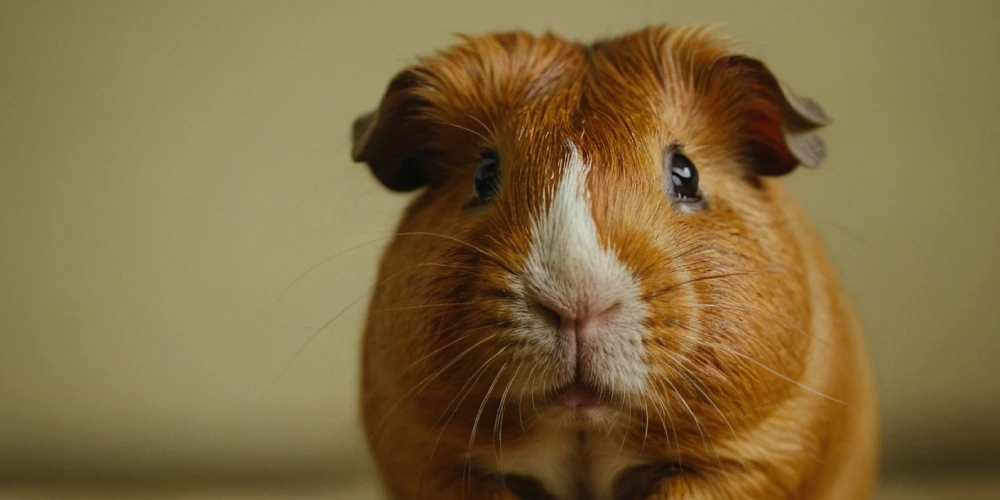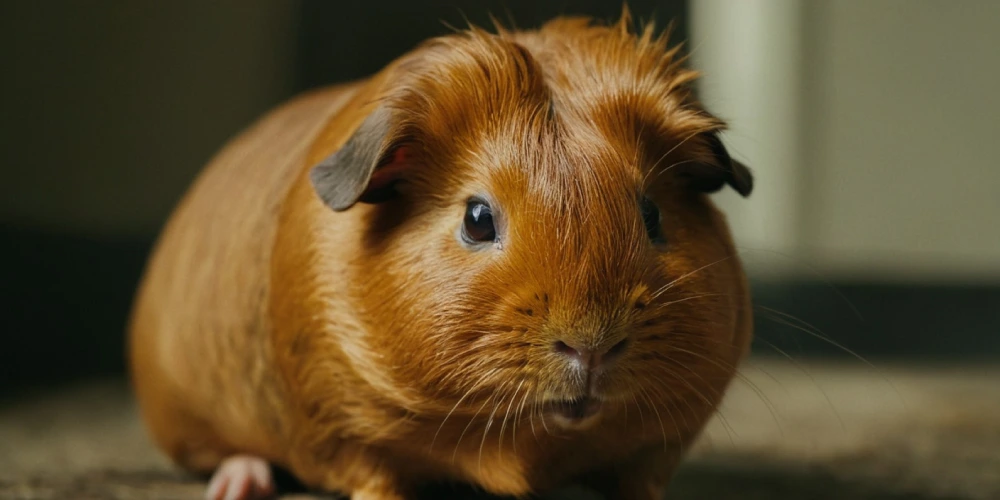
What Does Jealousy Mean for Guinea Pigs?
Jealousy, as we understand it in humans, involves feeling upset or threatened because someone else is receiving the attention or resources we desire. For guinea pigs, jealousy isn’t as complex, but they do show behaviors that resemble this emotion. These small animals rely on instincts and social behaviors to express themselves. When a guinea pig feels ignored or senses unequal treatment, it might react in ways that suggest jealousy, such as vocalizing, nudging its cage mate, or even acting out.
Guinea pigs don’t experience jealousy in the emotional, conscious way humans do. Instead, their actions stem from basic needs or their sense of security. For example, suppose one guinea pig sees another receiving more treats. In that case, it might squeak loudly, not because it understands the concept of fairness, but because it wants to make sure its needs are met, too. Understanding this helps us recognize that guinea pigs don’t act out of malice or selfishness. They want to feel secure and included in their environment.
This perspective allows pet owners to focus on creating a harmonious living situation for their guinea pigs. It also highlights the importance of understanding guinea pig communication, as their behaviors often indicate what they need or want from their environment or caretaker.
Signs Your Guinea Pig Might Be Jealous
Guinea pigs don’t use words, but they are excellent communicators through their body language and vocalizations. Suppose a guinea pig feels neglected or sees another pet getting more attention. In that case, it may show specific behaviors that point to jealousy. Here’s a closer look at these signs:
1.Vocalizations
Guinea pigs show their emotions with a range of sounds. One common sound is “wheeking,” a high-pitched squeal that they often use when excited or seeking food. However, suppose your guinea pig begins squeaking excessively when you’re interacting with another guinea pig. In that case, it could draw your attention back to itself. This sound is a way of saying, “Hey, don’t forget about me!”
2.Aggressive Actions
Sometimes, jealousy can lead to physical actions. For example, a guinea pig might nip or nudge its cage mate to assert dominance or demand attention. This behavior isn’t about causing harm but rather about communicating its frustration or insecurity.
3.Seeking Attention
A jealous guinea pig might actively climb onto your hand, nuzzle you, or even block your interaction with other pets. These actions are their way of claiming your focus and reminding you of their presence.
4.Behavior Changes
Not all guinea pigs express jealousy through loud or aggressive actions. Some may sulk or retreat into their hideouts. This withdrawal is a sign that they feel neglected or left out, even if they don’t show it openly.
Understanding these signs allows you to address your guinea pig’s needs before jealousy escalates into more serious behavioral issues.
Why Do Guinea Pigs Feel Jealous?
Guinea pigs are naturally social animals that depend on their environment and companions for comfort and security. Jealousy in guinea pigs often stems from unmet needs or perceived imbalances in attention or resources. Here’s why they might feel jealous:
1.Competition for Resources
In the wild, guinea pigs live in groups where resources like food and shelter are shared. At home, if one guinea pig receives more food or better access to hiding spots, others might feel left out. This competition can lead to jealousy-like behaviours as they instinctively try to ensure their survival.
2.Attention Imbalance
Guinea pigs bond with their owners and crave interaction. If one guinea pig receives more petting, treats, or playtime, the others may try to regain your attention by squeaking or nudging. They aren’t being mean or demanding; they’re just seeking the affection they need.
3.New Guinea Pig or Pet in the Home
Introducing a new guinea pig or pet can upset the existing social balance. Your guinea pigs may view the newcomer as competition for your time and resources. This feeling is natural and usually subsides as the group adjusts to the new dynamic.
4.Territorial Instincts
Guinea pigs can be territorial, especially in shared spaces. If one guinea pig feels its area or belongings are being encroached upon, it might act out in ways that seem jealous. For example, it might chase or nip the other guinea pig to reassert control.
Recognizing these causes helps pet owners create a balanced environment where all guinea pigs feel secure and valued.

How to Prevent Jealousy in Guinea Pigs
Jealousy in guinea pigs is manageable with thoughtful care and attention. Preventing jealousy means ensuring that all guinea pigs in your home feel equally loved and have access to their needs. Here’s how you can achieve that:
1.Provide Equal Attention
Make sure to spend time with each guinea pig individually. Guinea pigs thrive on social interaction, and ensuring equal attention prevents feelings of neglect. For example, if you hold one guinea pig, spend some time with the others afterward. This creates a sense of fairness and reduces competition for your affection.
2.Create a Fair Environment
Set up your guinea pigs’ living area so that each has access to food bowls, water bottles, and hiding spots. Providing duplicates of these essentials ensures no one feels left out. If you give treats, distribute them equally to avoid competition.
3.Introduce New Guinea Pigs Slowly
Adding a new guinea pig to your household should be done gradually. Start by placing the latest guinea pig in a separate enclosure nearby so the existing guinea pigs can become familiar with its scent. Slowly introduce them under supervision, ensuring the process is stress-free for everyone.
4.Observe Group Dynamics
Guinea pigs have a natural hierarchy, and some may be more dominant than others. Keep an eye on how they interact and intervene if one guinea pig seems to bully or exclude the others. Gentle supervision helps maintain harmony in the group.
5.Use Enrichment Activities
Bored guinea pigs are more likely to develop negative behaviors, including jealousy. Provide toys, tunnels, and opportunities for exploration to keep them engaged and happy. When guinea pigs are entertained, they’re less likely to feel jealous or stressed.
With these steps, you can create a loving and supportive environment where jealousy is minimized and all guinea pigs feel secure.

Can Jealousy Harm Guinea Pigs?
While jealousy itself isn’t directly harmful, the behaviors associated with it can cause problems. These include:
1.Aggression
Jealousy can lead to fights between guinea pigs. If one guinea pig bites or chases another out of jealousy, it may cause physical injuries or stress.
2.Stress
Guinea pigs that feel left out or insecure may become stressed. Prolonged stress can weaken their immune systems, making them more prone to illnesses.
3.Bonding Problems
Jealousy can disrupt the bond between guinea pigs, causing tension in their relationship. This tension might make it harder for them to share space peacefully.
Preventing jealousy is vital for their mental well-being and general health. By addressing jealousy promptly, you ensure a happier, healthier life for your guinea pigs.

Building a Strong Bond with Your Guinea Pigs
A strong bond with your guinea pigs helps prevent jealousy and ensures they feel secure in your care. Here’s how to strengthen that bond:
1.Interact Daily
Spend quality time with your guinea pigs every day. Regular interaction builds trust and affection, whether it’s petting them, talking to them, or letting them explore outside their cage.
2.Offer Treats as Rewards
Use treats to encourage positive behavior and make your guinea pigs feel special. For instance, if your guinea pig comes to you when called, reward it with a small piece of its favorite vegetable.
3.Learn Their Personalities
Each guinea pig is unique. Some might love being held, while others prefer exploring. Observing their preferences helps you provide the type of attention each guinea pig enjoys.
Developing trust and awareness of your guinea pigs’ particular requirements can reduce the possibility of jealousy and strengthen your relationship with them.
Conclusion
Guinea pigs are social and expressive animals that thrive on companionship and attention. While they may not experience jealousy in the human sense, they can exhibit behaviors that suggest they feel left out or insecure. Recognizing these signs and addressing their needs is key to ensuring a harmonious and happy environment.
By providing equal attention, maintaining fairness, and fostering strong bonds, you can prevent jealousy and keep your guinea pigs content. These small efforts go a long way in ensuring your pets live a joyful and healthy life.
FAQs
1.Can guinea pigs feel bored?
Yes, guinea pigs can get bored if they don’t have enough stimulation. Providing toys, tunnels, and time outside their cage helps keep them mentally and physically active.
2.How can I tell if my guinea pig trusts me?
A trusting guinea pig will approach you willingly, enjoy being petted, and might even eat from your hand. Over time, it may become more relaxed in your presence.
3.Should I keep guinea pigs in pairs or groups?
Yes, guinea pigs are social animals and are happiest when they have at least one companion. Keeping them in pairs or small groups helps meet their social needs.
4.Why does my guinea pig chew on the cage bars?
Chewing on bars can be a sign of boredom, stress, or a need for more attention. Ensure your guinea pig has enough toys and interaction to prevent this behavior.
5.Is it okay to give guinea pigs a variety of fruits and vegetables?
Yes, guinea pigs enjoy a variety of fruits and vegetables, but these should be given in moderation. Stick to safe options like carrots, bell peppers, and apples, avoiding high-sugar or toxic foods.
